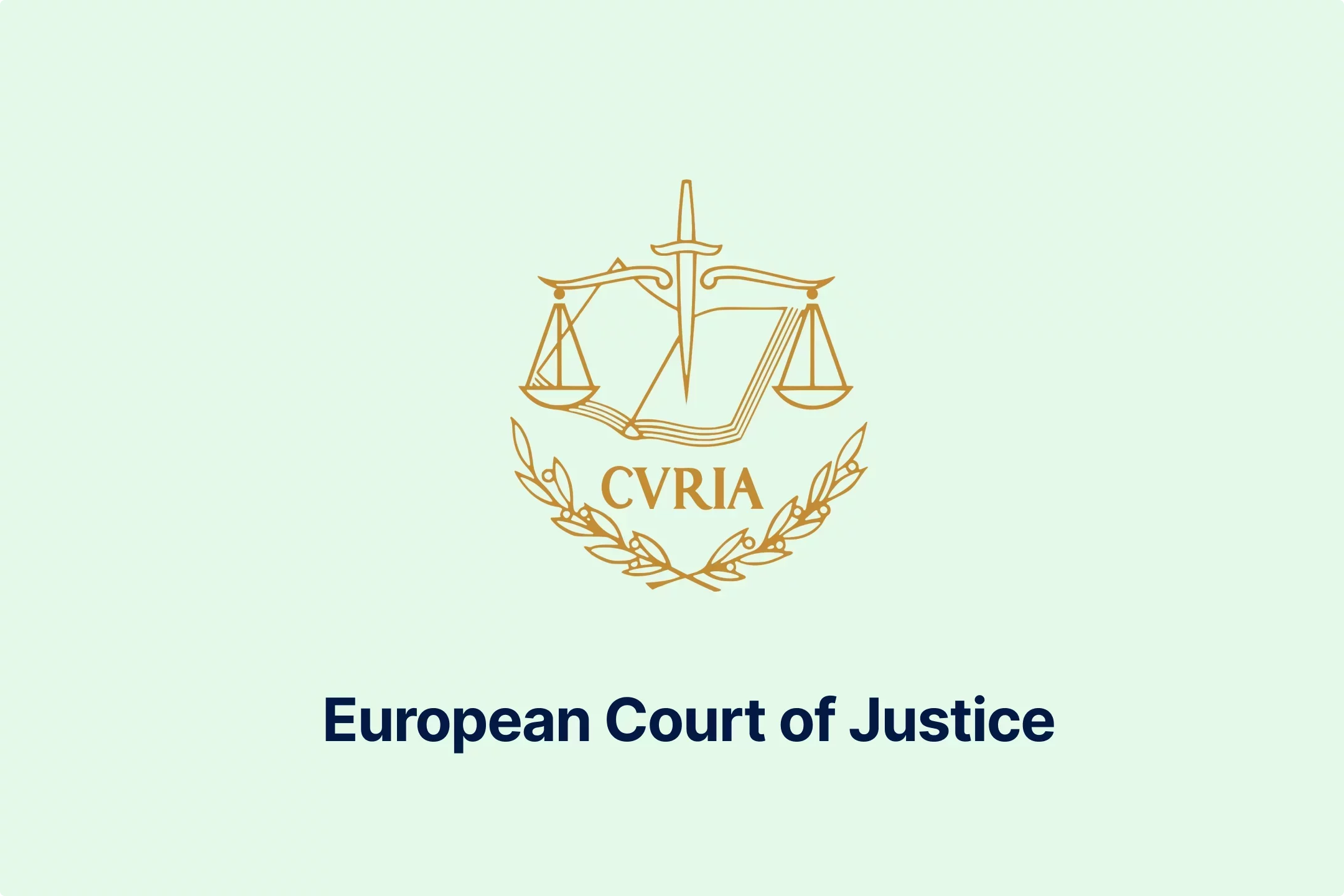VAT Joint and Several Liability: EU Law, Proportionality, and Rights

🎧 Prefer to Listen?
Get the audio version of this article and stay informed without reading - perfect for multitasking or learning on the go.
If you’re a director, insolvency advisor, or business owner, this matters a lot. You have real exposure—potentially being on the hook for debts you didn’t personally rack up, or interest that piles up while the company is in trouble. But where do the limits lie? Recent Court of Justice of the EU (CJEU) rulings have brought new clarity, but also new questions about what’s fair and lawful. Automatic director liability is under the spotlight, especially when measured against Article 273 of the VAT Directive, proportionality, legal certainty, and basic rights for anyone caught in these situations.
In this article, you’ll learn
What EU law, including Article 273 of the VAT Directive, actually allows when it comes to joint and several liability for VAT.
How the CJEU sets boundaries to keep national VAT rules proportionate and clear.
Which fundamental rights and key procedural safeguards must be in place to protect directors.
Practical steps you should take, both if you’re facing insolvency or you want to safeguard yourself in advance.
If you want to avoid nasty surprises - or just make sense of where you stand - this is the plain-English guide you need. The latest CJEU judgments underline how vital those safeguards are for anyone touched by VAT debts and insolvency proceedings.
7 Key Steps to Navigate VAT Joint and Several Liability Under EU Law
Understanding how EU law balances tax enforcement with directors’ rights is critical for avoiding pitfalls around VAT debts. Below, we break down the main steps you need to grasp, whether you’re a director, advisor, or simply want clarity on where you stand. Each point combines practical insights with legal fundamentals - so you can act confidently and protect your interests.
1. Recognize What VAT Joint and Several Liability Means - And Who Is at Risk
VAT joint and several liability means that both current and former directors, and sometimes even third parties, can be directly responsible for a company's unpaid VAT debts. This liability is not limited to those still at the company but extends after you leave your position. Liability can cover full VAT debts, and in some cases, default interest too. For businesses facing insolvency, the reach of this responsibility can be significant.
If you have ever served as a director or on the board, you could be targeted for collection efforts.
It's crucial to know the national rules - some countries treat resigned directors or non-faulty parties exactly the same as those who actively caused the debt.
Bottom line: Former directors aren’t in the clear just because they left before debts arose. If VAT debts or insolvency proceedings loom, assess your risk immediately.
2. Get to Grips with Article 273 of the VAT Directive - It Sets the Legal Framework
Article 273 of the VAT Directive allows EU Member States to impose “other obligations” to ensure correct VAT collection. However, this freedom comes with strict boundaries: national laws can set rules like joint and several liability, but these rules must not undermine the core principles of EU law. The goal is clear: fight VAT fraud and safeguard each Member State’s revenue, but not at the cost of fairness.
Automatic liability is not forbidden outright under EU law.
Measures must be tailored - not every director or third party is equally liable, especially if their role or conduct is not at fault.
For a deep dive on the CJEU’s interpretation, check the full judgment at Official CJEU Judgment: Case C-277/24.
3. Assess Rules for Proportionality and Legal Certainty
National measures on VAT liability must pass two core tests: proportionality and legal certainty. A proportionate rule is one that’s necessary - never excessive - for VAT collection. If the law automatically targets directors with no regard for their tenure or level of responsibility, it may fall foul of EU standards.
Legal certainty means you should be able to predict the legal consequences of your actions.
Blanket liability without distinctions can be challenged for being unclear or unduly harsh.
The CJEU recently stressed that denying directors a route to contest liability, or to show they acted in good faith, violates these key principles.
4. Safeguard Your Fundamental Rights During Insolvency or Tax Disputes
It’s not enough for rules to exist - the process must protect your rights. You have the right to a defense, a fair hearing, and reasonable access to challenge or review the tax authority’s claims. EU law insists that directors must have:
The chance to contest both the facts and the legal reasoning behind VAT assessments.
Access to all relevant case files or evidence affecting their liability.
Such safeguards are particularly important in insolvency proceedings, where stakes are high and liability may follow after you’ve left a struggling business.
5. Know When Automatic Joint and Several Liability Crosses the Line
The CJEU has made its position clear: automatic director liability is allowed by EU law, but only if fundamental procedural rights are respected. There is no absolute requirement for a national law to prove fault or include explicit exemptions for former directors, as long as those who are at risk have a genuine opportunity to defend themselves.
VAT debts may even include default interest, regardless of director conduct.
What matters most is that directors are not deprived of a real say in proceedings, and their individual situation is factored in.
6. Document and Demonstrate Your Good Faith as a Director
For directors, ongoing documentation of your actions and efforts is essential. A well-kept paper trail of responsible management, tax compliance checks, and timely advice-seeking can make all the difference if you ever have to challenge joint and several liability.
Keep records of decisions, advice from tax professionals, and all internal compliance steps.
Evidence of efforts to avoid VAT fraud or mismanagement will bolster your defense under scrutiny, increasing the likelihood you can contest automatic liability if pursued.
7. Actively Monitor Compliance, Company Processes, and Evolving EU Case Law
Compliance doesn’t stop once you know the basics. Both current and former directors should keep up with national changes and regular CJEU updates around VAT, joint and several liability, and insolvency rules.
Schedule periodic reviews of your company’s VAT processes and director liabilities.
Train senior staff and advisors on the implications of Article 273 of the VAT Directive and related national laws.
Regularly check for updates to ensure you remain protected as interpretations and enforcement approaches shift.
Staying proactive is your best defense - directors who ignore new case law risk unpleasant surprises.
Subscribe now. Stay tuned.
Don’t miss out on crucial Tax developments that could impact your business or practice.
Understanding VAT, joint and several liability, and how Article 273 interacts with proportionality and rights is non-negotiable if you hold (or once held) a seat at the boardroom table. Armed with this knowledge, directors can minimize exposure, assert core rights, and ensure both the business and their own positions remain compliant and defensible in an increasingly complex EU tax world.
Conclusion
If you’re involved with a company in the EU, don’t ignore the risks of VAT joint and several liability. The current legal landscape makes it possible for directors, past or present, to face heavy VAT debts, but also puts clear limits on how far authorities can go.
Stay on top of national rules, keep your documentation organized, and know your rights under EU law. Doing so puts you in a much stronger position to spot issues early, defend yourself, and keep both your company and your personal assets safe from unnecessary VAT liability.

More News from Europe
Get real-time updates and developments from around the world, keeping you informed and prepared.
-e9lcpxl5nq.webp)







-3rcczziozt.webp)

-rvskhoqpms.webp)




-a5mkrjbira.webp)

-ivkzc1pwr4.webp)




-hssrwb5osg.webp)



-c06xa1wopr.webp)









-webajrr4ny.webp)
-evibmwdwcn.webp)
-7acdre0hop.webp)

-lcgcyghaer.webp)
-ol6mdkdowg.webp)
-aqdwtmzhkd.webp)

-njgdvdxe2u.webp)



-i6rki3jbad.webp)
-hdwgtama05.webp)

-atbhy5fyxv.webp)






-zp2n6zixoa.webp)
-oa1ynbm4sn.webp)


-lltkno6txy.webp)



-do38odrqnq.webp)

-t409oldqzt.webp)

-hordopb6xh.webp)

-ooimnrbete.webp)

-lwb5qpsily.webp)


-eumafizrhm.webp)

-mtqp3va9gb.webp)

-3ewrn1yvfa.webp)
-591j35flz2.webp)

-huj3cam1de.webp)


-hafis0ii23.webp)

-qseaw5zmcy.webp)



-qzsah2ifqx.webp)


-69rzooghib.webp)
-wrvng98m0g.webp)


-psucycuxh2.webp)
-klyo8bn5lc.webp)




-6wv5h5eyyd.webp)
-tfgg78rbid.webp)
-a6jpv9ny8v.webp)
-qhdbapy0qr.webp)


-owvu7zoc13.webp)


-h28jrh1ukm.webp)

-wl9bl1rw3a.webp)

-2w76jtvtuk.webp)

-c0uvrmrq9j.webp)



-pofe7ucwz3.webp)



-5cc23ezxyf.webp)
-rrmabbekeb.webp)








-iyyeiabtaf.webp)
-c8rbjkcs01.webp)
-nilkffjhah.webp)

-hikakq55ae.webp)

-z1d60bldtg.webp)
-d1a0q6n7mp.webp)
-viip8nvoeh.webp)
-bvv1otliox.webp)



-de8hdb1bn3.webp)
-7xsxxoypnx.webp)

-cm0opezg73.webp)
-0tovsdupmi.webp)
-subxdamdj6.webp)


-gly6ablwnh.webp)
-gkduqhwbzh.webp)
-qpe1ld9vcj.webp)
-8noukwsmba.webp)
-aka29tuhkt.webp)


-fisvs27yrp.webp)


-mp0jakanyb.webp)

-aivzsuryuq.webp)



-o7f4ogsy06.webp)

-zjja92wdje.webp)
-hrbhdts8ry.webp)
-qtdkwpgkug.webp)


-cf8ccgah0p.webp)
-0em3cif5s6.webp)






-ptzesl0kij.webp)

-tfzv42pyms.webp)







-uodv7sfbih.webp)
-bbrdfmm9qf.webp)



-m2tl8crfqr.webp)



-1awbqjgpjs.webp)
-avbjsn1k1g.webp)


-0h8ohkx6s0.webp)



-wfmqhtc7i6.webp)
-7wljbof2zo.webp)

-eqt97uyekl.webp)
-wzw9mcf563.webp)

-z4oxr6i0zd.webp)




-l0zcrrzvhb.webp)
-fhtic1pwml.webp)

-iipdguuz9p.webp)
-nkhhwrnggm.webp)
-pltqwerr3w.webp)

-nn6mtfbneq.webp)

-tmnklelfku.webp)



-8z1msbdibu.webp)
-7g16lgggrv.webp)



-lxcwgtzitc.webp)
-9mc55kqwtx.webp)


-xla7j3cxwz.webp)
-jrdryw2eil.webp)






-t9qr49xs2u.webp)


-qjopq5jplv.webp)



-vune1zdqex.webp)

-qsozqjwle2.webp)
-rgjta7iwiv.webp)

-zb6bxxws47.webp)
-lyfjzw4okp.webp)

-ogpfmol5m1.png)


-czisebympl.png)

-zetvivc79v.png)
-ud7ylvkade.png)
-qizq6w2v5z.png)







-ihr6b4mpo1.webp)
-k1j4au0ph6.webp)
-swxxcatugi.webp)


-ig9tutqopw.webp)

-tauoa6ziym.webp)

-spr0wydvvg.webp)

-xfuognajem.webp)





-u2nv5luoqc.webp)








-opuxpan2iu.webp)




-kwttsfd8ow.webp)
-8u14qi10nj.webp)

-wjpr96aq5g.webp)

.png)

.png)


.png)


.png)



.png)
.png)
.png)
.png)
.png)

.png)
.png)




.png)
.png)




































































































































